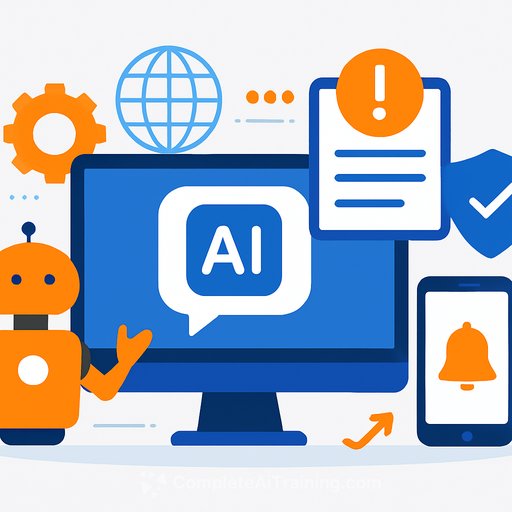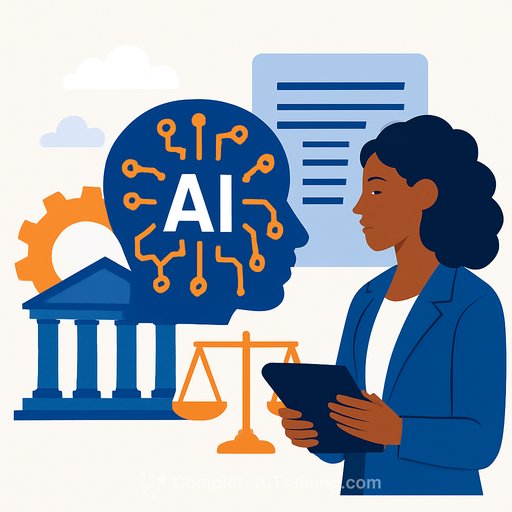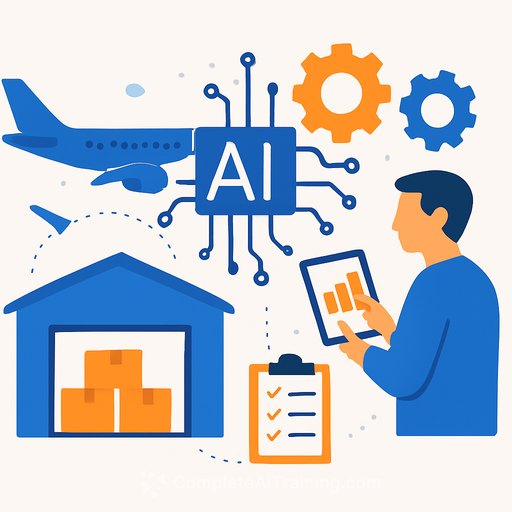PagerDuty launches AI agents and 150 updates for operations teams
PagerDuty's Fall '25 release pushes hard on incident speed and team focus. The headline: new AI agents plus 150+ enhancements aimed at cutting resolution time and reducing cognitive load across digital operations.
Early trials report incidents resolved up to 50% faster. As Jeffrey Hausman, Chief Product Development Officer, put it: "This is a turning point for digital operations... Our customers are already seeing dramatic reductions in downtime and a step-change in engineering productivity."
What's new: AI agents built for Ops
- SRE Agent: Learns from related incidents, surfaces context, recommends diagnostics and fixes, and generates self-updating runbooks. Early users saw faster response and less on-call fatigue.
- Scribe Agent: Auto-transcribes Zoom and chat, then posts structured summaries/status updates in Slack or Microsoft Teams so nothing gets lost mid-incident.
- Shift Agent: Detects and resolves on-call scheduling conflicts before they hit coverage.
- Insights Agent: Uses analytics to provide context-aware recommendations to prevent issues from escalating.
Expanded AI integrations and MCP
PagerDuty's remote Model Context Protocol (MCP) server is now generally available, enabling third-party AI agents to plug into operations workflows. More than 250 customers have started using the MCP server in the past two months.
Will Pfleger, Senior Software Engineer at Block, shared: "We built a PagerDuty MCP extension to connect our open source AI agent, goose, with incident management workflows. This has become a production tool that automates triage and root cause analysis across our teams."
Learn more about the protocol: Model Context Protocol. See the platform: PagerDuty.
Developer and workflow updates
- Spotify for Backstage integration expands, bringing more context to the developer portal.
- Chat-native improvements embed summaries, status, and actions directly in Slack and Microsoft Teams so responders stay in flow.
- Flexible scheduling enhancements give teams finer control over shifts and coverage.
James Governor, Analyst and Co-Founder at RedMonk, noted the broader trend: enterprises are struggling with the rising complexity of software and infrastructure as AI adoption accelerates. He points to developer experience, open standards like MCP, and agent-based workflows as the right direction for operations and engineering teams.
Availability
- Early access: SRE Agent, Insights Agent (broader availability planned for Q4 2025).
- General availability: Scribe Agent, Shift Agent, MCP Server, and Backstage integration.
- Chat-first: Slack enhancements live now; Microsoft Teams slated for full launch in Q4 2025.
- Flexible scheduling: Rolling out in early access over the same period.
Why Ops leaders should care
- Faster MTTR, less context-switching: Agents handle repetitive diagnostics, updates, and note-taking so humans can focus on decisions and remediation.
- Reduced on-call fatigue: Self-updating runbooks and conflict detection prevent repeat pain and coverage gaps.
- Better signal from data: Insights Agent turns historical patterns into prevention and smarter escalations.
- Open ecosystem: MCP support means you can connect your own agents into PagerDuty workflows.
How to put this to work now
- Pick a pilot service: High-volume, clear SLOs, and strong observability. Measure MTTR, handoffs, and paging volume before/after.
- Enable Scribe in war rooms: Let it own transcription and status summaries in Slack to keep responders focused.
- Wire MCP with guardrails: Start with read-only integrations, then expand to safe-write actions (restart, scale, feature flag) with approval steps.
- Adopt self-updating runbooks: Use the SRE Agent's recommendations to capture fixes and prevent repeats.
- Tighten on-call mechanics: Use Shift Agent to remove scheduling conflicts before they cause SLA breaches.
- Track outcomes: Watch MTTA/MTTR, re-open rates, paging volume per service, and postmortem time saved.
If your team is building AI-agent skills for operations, consider structured training: AI Automation Certification.
Your membership also unlocks:






